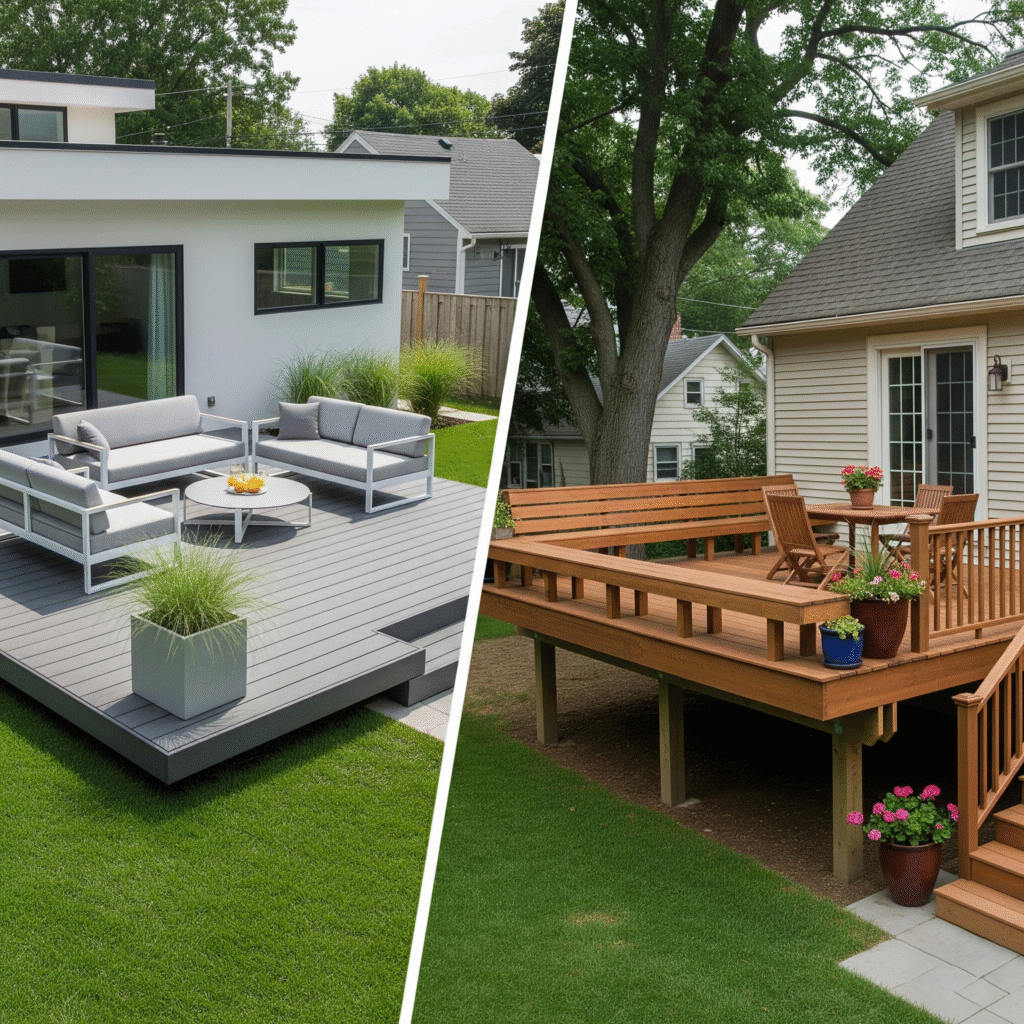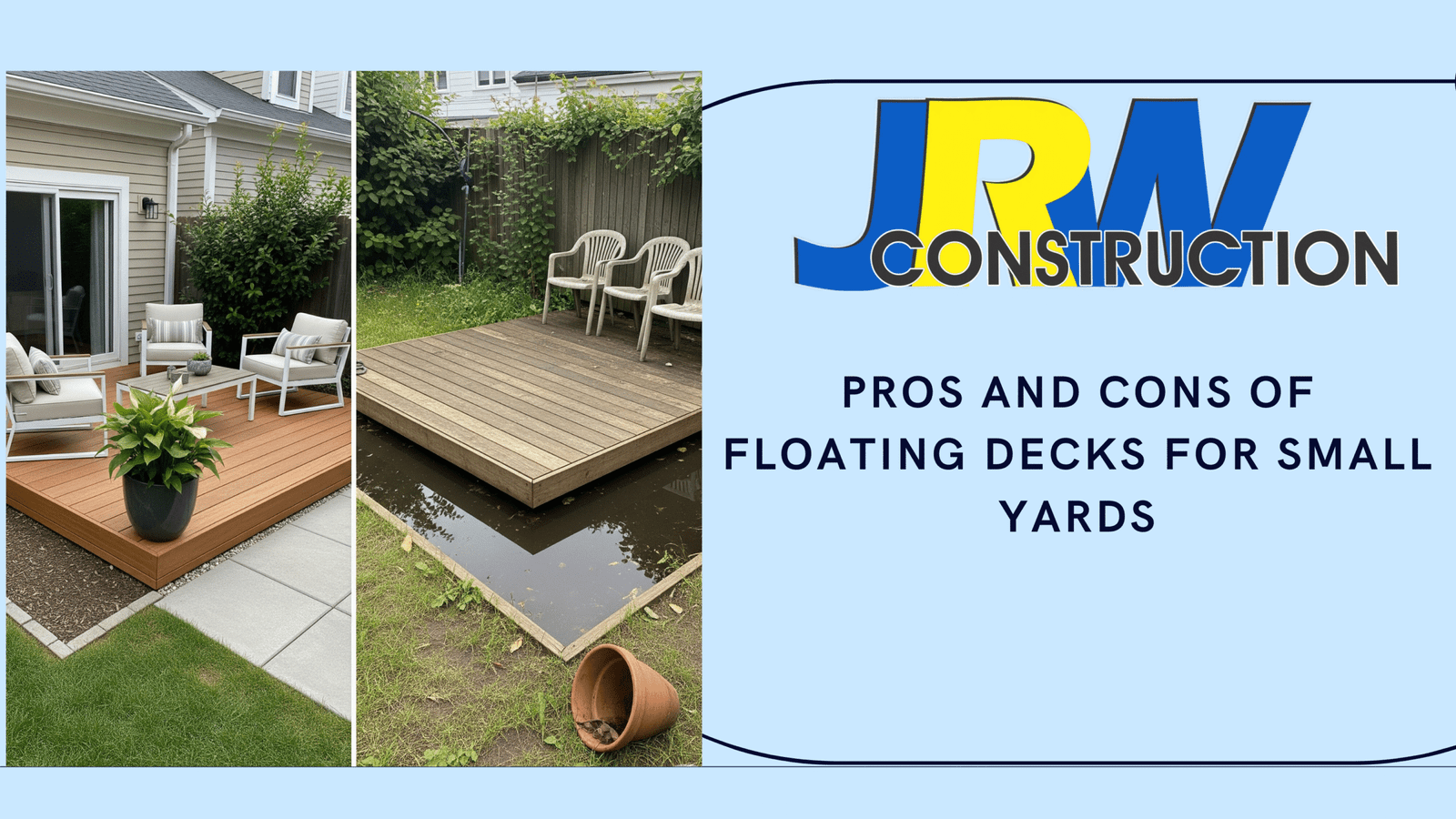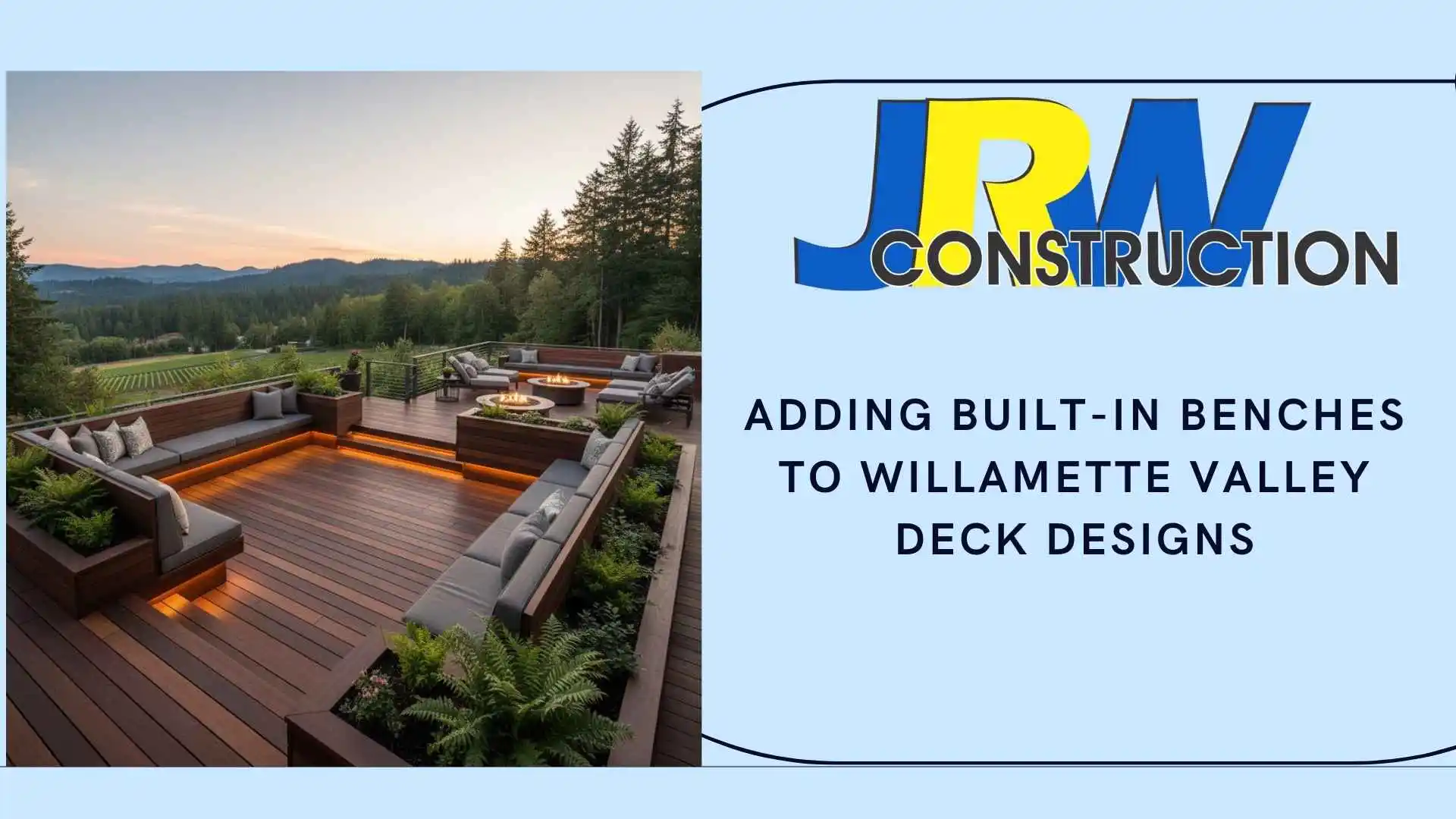Introduction
Floating decks, also known as freestanding decks, have become a popular outdoor feature for homeowners with limited yard space. Unlike traditional decks that are attached to a house, floating decks are built on the ground or slightly elevated, supported by concrete blocks or footings rather than being anchored to the home’s foundation. This design offers flexibility, affordability, and a unique look, but it also comes with certain drawbacks.
In this guide, we’ll explore the pros and cons of floating decks for small yards in the Willamette Valley so you can determine whether this option is the perfect fit for your outdoor space.
Pros of Floating Decks
1. Easy Installation
One of the biggest benefits of floating decks is their simple installation process. Since they don’t require digging deep footings or attaching to your home, the construction is generally faster and less complex. Many homeowners even choose to DIY their floating decks, saving on labor costs.
2. Cost-Effective
Floating decks are usually more budget-friendly compared to traditional decks. With fewer structural requirements and no need for building permits in some areas, you can cut costs significantly. The materials needed are minimal, and you won’t have to pay for extensive excavation or heavy-duty support systems.
3. Flexibility in Placement
Since floating decks are freestanding, you can place them almost anywhere in your yard, even over uneven ground. This makes them ideal for small yards where space and layout may be limited. You can also relocate or expand the deck later if your needs change.
4. Aesthetic Appeal
Floating decks offer a modern, sleek appearance that enhances outdoor aesthetics. You can customize the shape, size, and materials to match your landscaping. Adding planters, lighting, or railings can further improve the design.
5. Minimal Ground Impact
Because they require little to no excavation, floating decks have less environmental impact on your yard. They can be installed without significantly disturbing the existing lawn or landscaping.
Cons of Floating Decks
1. Limited Height Options
Floating decks are best for low elevations. If you want a raised deck that matches your home’s floor level, a traditional deck might be more suitable. Building a floating deck too high could make it unstable without significant reinforcement.

2. Potential for Movement
Since floating decks rest on the ground or blocks, they can shift slightly over time due to soil movement, frost heave, or heavy rain. Regular inspections and adjustments may be necessary to keep the deck level.
3. Possible Moisture Issues
Being close to the ground, floating decks are more exposed to moisture from soil and grass. Without proper ventilation or moisture barriers, the deck boards can deteriorate faster. Choosing weather-resistant materials like composite decking can help prevent this issue.
4. Shorter Lifespan Compared to Traditional Decks
Although well-built floating decks can last many years, they typically don’t have the same lifespan as decks anchored to a foundation. This is especially true if the deck is made from untreated wood and installed in a damp or uneven area.
5. Local Restrictions
Some municipalities have specific codes for floating decks, especially concerning size and height. You may still need to follow local building regulations, even if the deck is not attached to your home.
Tips for Building a Floating Deck in a Small Yard
- Choose the right materials – Opt for weather-resistant wood like cedar or composite decking for durability.
- Level the ground – A stable base will reduce movement over time.
- Add a moisture barrier – This will protect the underside of the deck from rot.
- Incorporate multifunctional features – Built-in benches, storage, or planters maximize usability in small spaces.
- Check local codes – Ensure compliance with any height, size, or setback regulations.
Conclusion
Floating decks can be an excellent addition to small yards, offering affordability, versatility, and a stylish outdoor retreat. However, they do have limitations when it comes to height, stability, and moisture exposure.
Call-to-Action (CTA):
By weighing the pros and cons and planning your deck carefully, you can create a functional and beautiful space that complements your home and lifestyle. Contact us today!




